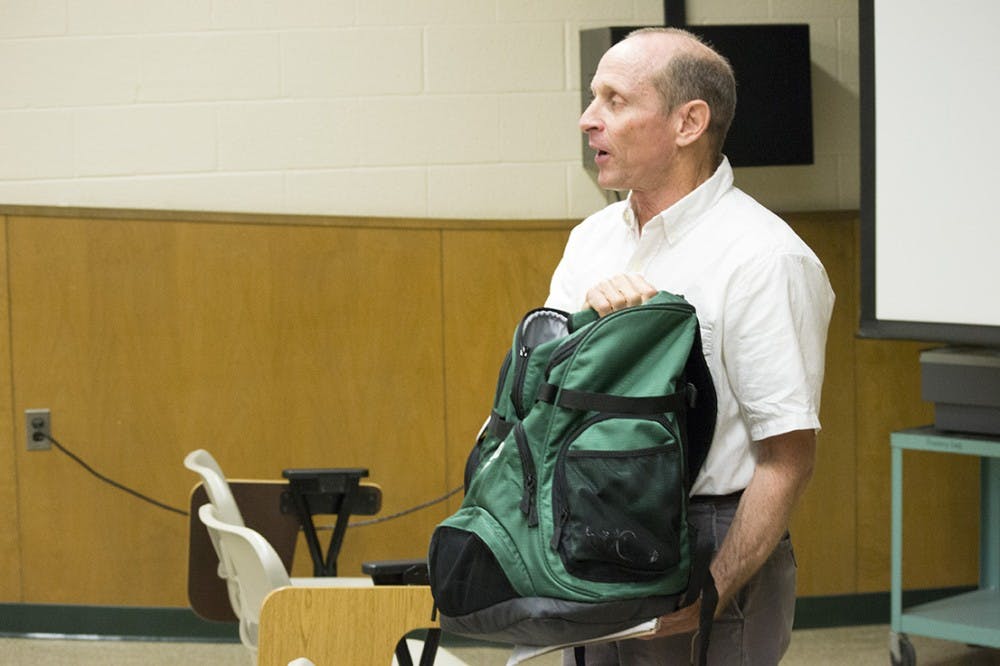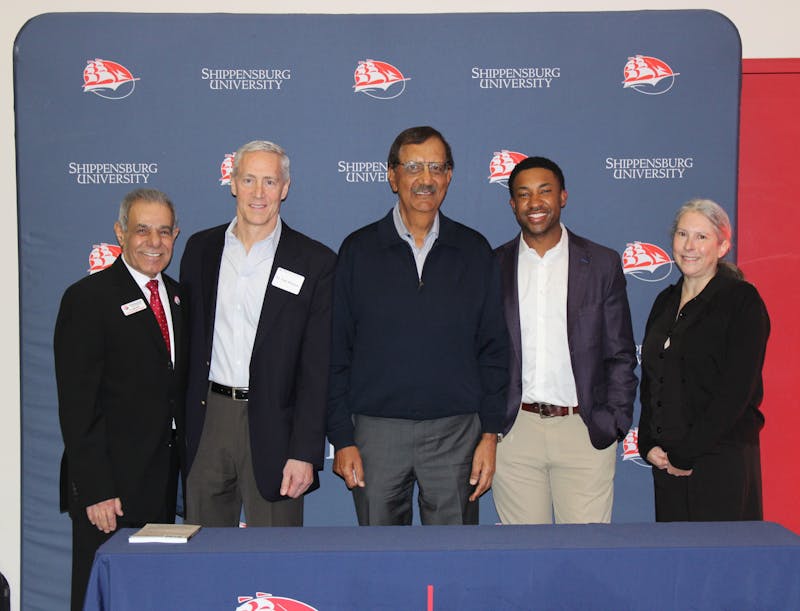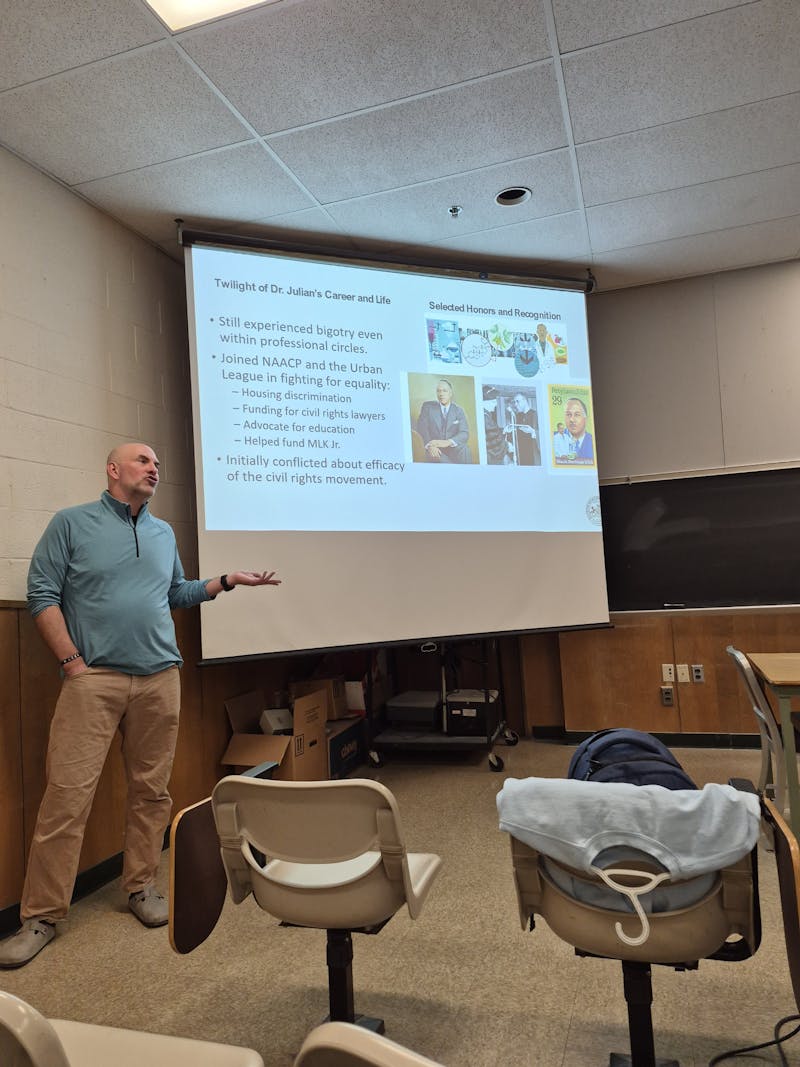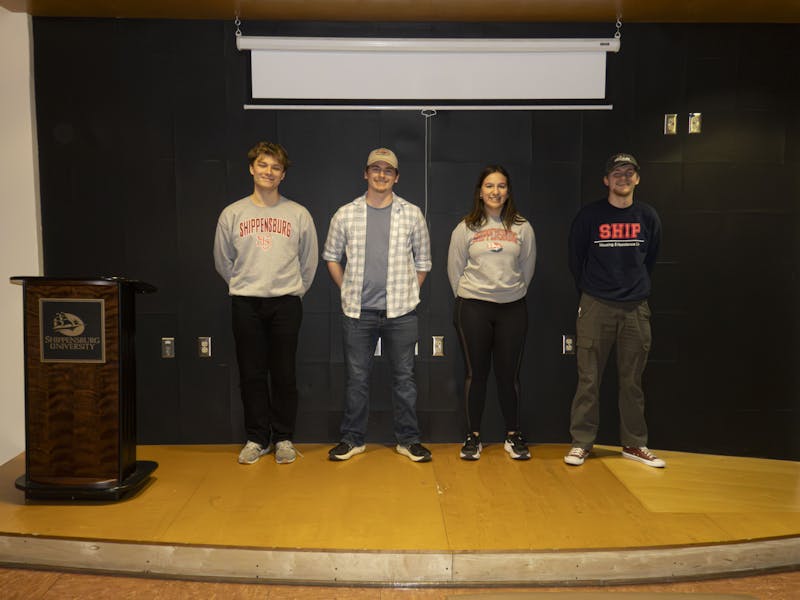Whether you are a woman in the savanna of South Sudan, the barren hills of Myanmar or the Himalayan Mountains of Nepal, you are a second-class citizen to your family and strangers alike — but not to a few world-class humanitarians.
The staff of the New Community Project (NCP) hails from around the U.S., but works out of Arizona to promote environmental sustainability and social justice for women’s rights. Director of the nonprofit, David Radcliff, stopped at Shippensburg University on Friday as part of an eight-state tour to share the goals of the NCP, and the plights of women in impoverished communities.
Radcliff works with young women in South Sudan, Myanmar and Nepal to give them the tools to be independent, safe and secure. That is not easy when these women grow up in societies that dictate their value based on being good sex or labor slaves, or how many cows they are worth. Living in poverty and not having access to education are two reasons why women are vulnerable to human trafficking and exploitation, Radcliff said.
“I’m building a case here for why these girls let themselves be a part of trafficking,” he said, stopping to explain the harsh realities of their lives. Girls in destitute communities may already be used to sexual and mental abuse at home, so the idea of becoming a paid sex worker is not always repulsive.
“Our work is to empower people in local settings,” Radcliff said.
With an annual budget of about $100,000, the NCP can work with partners around the world to offer some girls scholarships so they can go to school, Radcliff said. Communities in South Sudan have been plagued with war and many women are alone in displacement camps, while the men are in the military. For $60 a year, girls can go to one of three boarding schools in the country, giving them a chance to escape poor living conditions.
“Keeping a girl in school is one of the best ways to keep her out of harm’s way,” Radcliff said. But going to a boarding school is not always enough to give them the skills to find better economic opportunities. Many of the women want to cross the border into Uganda where they can attend a higher level school, but it costs $600 annually. The NCP is searching ways to get these women the money, but its primary efforts are to get the young into an entry level school.
“Fifteen-year-old girls are more likely to die from childbirth than graduate from high school,” he said.
Life only gets harder for the women of Myanmar’s hill people, who live on deforested and isolated lands. Women trek up to two hours a day to find wood for cooking and heating their homes, if their family did not already sell them to human traffickers. Traffickers will often lure girls as young 10 years old to brothels, by promising them and their family prosperous job opportunities in the city.
When neither the girl nor the family receives any money, there are rarely any inquires, Radcliff said. The young girls become slaves, and their family cannot tell the authorities, because often they took money from the traffickers — while treating their daughter as a tradable commodity. The status of women is so low in South Sudan, Myanmar and Nepal that cows are considered more valuable.
Vice President of SU’s Environmental Club Caitlin Lucas, who helped organize Radcliff’s visit, said that families of these societies do not see children the same way as American families do. The sharp divide in perspectives make it hard for foreigners to understand how women can be second-class citizens, Radcliff said. A combination of patriarchal traditions, ravished economies and illegal human trafficking activities keeps women susceptible to abuse and exploitation.
The NCP serves disparaged women and communities, offering shelters and scholarships. It recently invested $29,000 in Nepal to rebuild a shelter destroyed in 2015’s massive earthquake, Radcliff said. But the NCP also works in the U.S. to spread knowledge about global issues, specifically sustainable practices.
The nearly 13-year-old organization includes about 11,000 people, and encourages the use of organic gardens and sustainable living practices. It operates Sustainable Living Centers in Virginia and Vermont, where people can sign up to work and live. People can also volunteer for six-month blocks to work in South Sudan, Nepal, Central America or the Amazon.
About 600,000 to 800,000 people are being trafficked, and 80 percent of them are females — half of them are under 18 years of age.





The Slate welcomes thoughtful discussion on all of our stories, but please keep comments civil and on-topic. Read our full guidelines here.